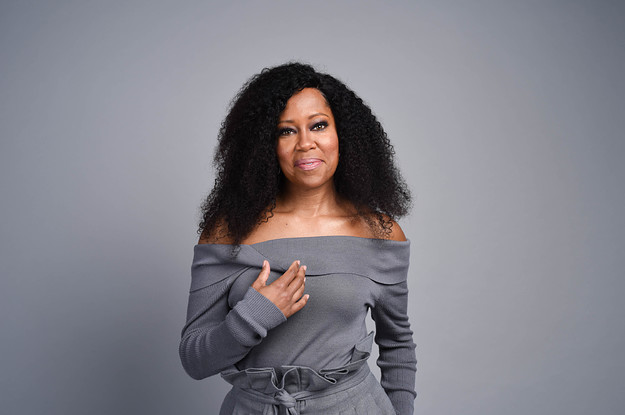
Regina King, who stars in the upcoming film adaption of James Baldwin’s 1974 novel If Beale Street Could Talk, said on Sunday that making it in Hollywood requires “honesty” and “never giving up.”
“Because you will hit a time where you’re hearing ‘no’ more than you’re hearing ‘yes,’” King said on BuzzFeed News’ Profile. “And you just can’t let that ‘no’ shut you down.”
King, 47, was named Best Supporting Actress by the New York Film Critics Circle for her role in If Beale Street Could Talk. She was asked to name the “most essential quality to succeed” in Hollywood by a member of the Profile audience.
King mentioned the upcoming HBO superhero series Watchmen, in which she plays the lead. “You can’t give up. I mean, like I said: I’m finally playing a superhero and I’ll be 48 in a couple of months,” she said.
When someone else asked about what advice she might have for a woman of color with aspirations to become a director, King suggested overcoming self-doubt and being resolute. “Even if your day job is whatever, lead with ‘I’m a director.’ Claim it,” she said.
The actor was featured in the Hollywood Reporter last month as part of an “actress roundtable” with other stars including Glenn Close and Lady Gaga, and was the only woman of color included on the cover and in the conversation. She told Profile host Audie Cornish that being included was “bittersweet” given the cover’s homogeny.
“At that table, looking at Glenn Close, and talking to Glenn Close, and her dropping a few jewels on me — I am not going to not receive that as a beautiful moment,” King said. “It was, it is…bittersweet, I guess is the best way to put it.”
Actor Ellen Pompeo recently spoke out about a lack of racial diversity behind the scenes at a Porter magazine shoot, a moment that people on Twitter heralded as an example of how white people in the entertainment industry can be better allies. In the now-viral clip, Pompeo, seated fellow actors Gina Rodriguez, Emma Roberts, and Gabrielle Union, called out the lack of diversity in the room.
“This day has been incredible, and there’s a ton of women in the room,” Pompeo said. “But I don’t see enough color. And I didn’t see enough color when I walked in the room today.”
King said moments like this might create a domino effect, prompting other actors to find the “strength” to also speak up.
“I can’t speak on what a white woman is feeling about why she is or isn’t, or is she even thinking about it, I don’t know,” King said to Cornish. “But I would guess that there are some actors that feel like if they do, they’re jeopardizing their position. They’re putting their space in jeopardy.”
As an artist, King said, she is currently interested in projects that cause discomfort, and pointed to If Beale Street Could Talk as an example. “I like to see people uncomfortable,” King said. “I think that that’s when you get really to the truth.”
She said that she had heard people who watched the film say that they “had an awakening.”
“I feel like comfort zones are where dreams go to die,” King said. “So, that’s what I mean by ‘I like when people are uncomfortable,’ because I feel like you’re having an awakening.”

Be the first to comment